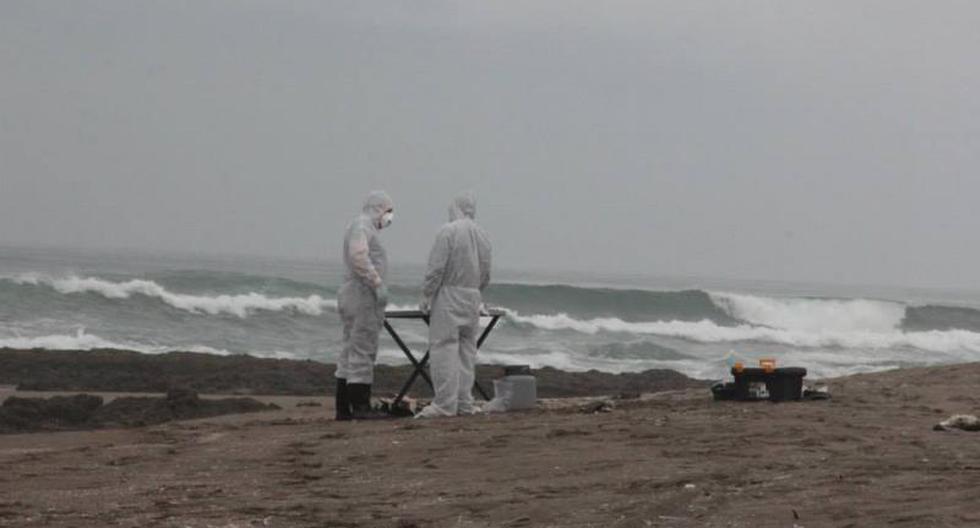After the Ministry of Agrarian Development and Irrigation (Midagri), through the National Agrarian Health Service (Senasa), declared a health alert for a period of 180 days at the national level, due to the presence of H5N1 avian influenza ‘highly pathogenic’, in at least three coastal regions of the country, several questions arise about whether there is a risk of consuming meat and eggs, or whether there is the possibility of contagion in people.
It should be noted that to date only positive cases of H5N1 avian influenza have been confirmed in wild birds (pelicans) in the regions of Piura, Lambayeque and Lima.
In addition, the Ministry of Health (Minsa), through the National Center for Epidemiology, Prevention and Control of Diseases (CDC Peru), issued an epidemiological alert in its establishments regarding the potential risk of avian influenza infection between humans and wild birds.
Therefore, the sector will intensify epidemiological surveillance on coastal beaches in the aforementioned regions.
What is avian influenza?
According to the World Health Organization (WHO), influenza or avian flu It is an infectious disease that mainly affects birds and is caused by a virus from the Orthomyxoviridae family.
It can be classified as low pathogenic or highly pathogenic, presenting different symptoms in infected birds. “the virus low pathogenic avian influenza can cause mild illnesswhich can go unnoticed or without the presence of symptoms”, indicates the organization.
Instead, they emphasize highly pathogenic virus, mainly by subtypes (H5 and H7) of type A, causes severe disease in birds that can spread rapidly, producing high mortality rates in different bird species.
Is it risky if I eat meat and eggs?
The CDC Peru specifies that, to date, there are no reports of this disease in backyard birds or commercial farms, Therefore, it does not represent a risk for the consumption of meat and eggs of domestic birds.
Sergio Recuenco, an epidemiologist at the National University of San Marcos, commented that although, according to the Senasa alert, Only pelicans have been infected to date, there is a possibility that other types of animals may become infected.
For this reason, Senasa has urged poultry producers, both backyard breeders, fighting cocks and commercial farms, to intensify biosecurity measures and promptly report to this entity any signs of disease in the birds.
(Source: Senasa)
Is it possible to spread to people?
The WHO also indicates that most influenza viruses circulating in birds are not zoonotic. “Nevertheless, some strains of highly pathogenic avian influenza have the ability to infect humans, posing a threat to public health”.
The main risk factor, notes the WHO, It is direct or indirect contact with infected animals, or with environments and surfaces contaminated by feces.
Its presence in the country is still being studied by Senasa; nevertheless, infected pelicans would have been caught by migratory wild birdswhich go from north to south and are usually carriers of the Influenza virus.
“This strain that has been found is infectious and it is more likely that it can be passed to people, but close contact is required”, Recuenco specified in RPP.
He also said that there is a risk that there are people, animals or birds, as in COVID-19, asymptomatic or with few symptoms. that they may be transmitting the disease without dying or worsening their health.
“That could generate some contagion from poultry or backyard birds, as has been discussed, and that would be quite alarming, especially at Christmas time where birds are the most consumed, such as turkey and chicken. There is also a lot of artisanal aging“, he pointed.
The epidemiologist gave these Recommendations to avoid infections: “Do not approach the birds, do not touch them, the personnel who have to do it must use all biosecurity measures. If there is a volunteer rescuer, first you have to train”.
As he said, contagion through the air is possible, but as long as there is contact, for example, rescuers who grab and hug the animal and share the breath.
“[El contagio] It is mainly due to the droplets of secretions that can fall into the eye or the oral or nasal mucosa of people”, stressed.
How to report a suspected case?
Senasa urges residents not to handle wild birds as they can report the presence of dead or sick birds to the cell phone: 946 922 469 or email [email protected]
RECOMMENDED VIDEOS
:quality(75)/cdn.jwplayer.com/v2/media/klC4yw7u/poster.jpg)
















